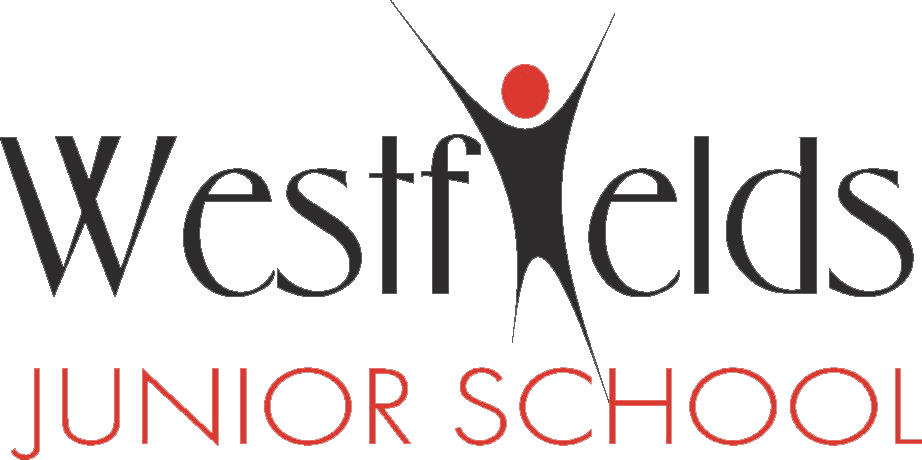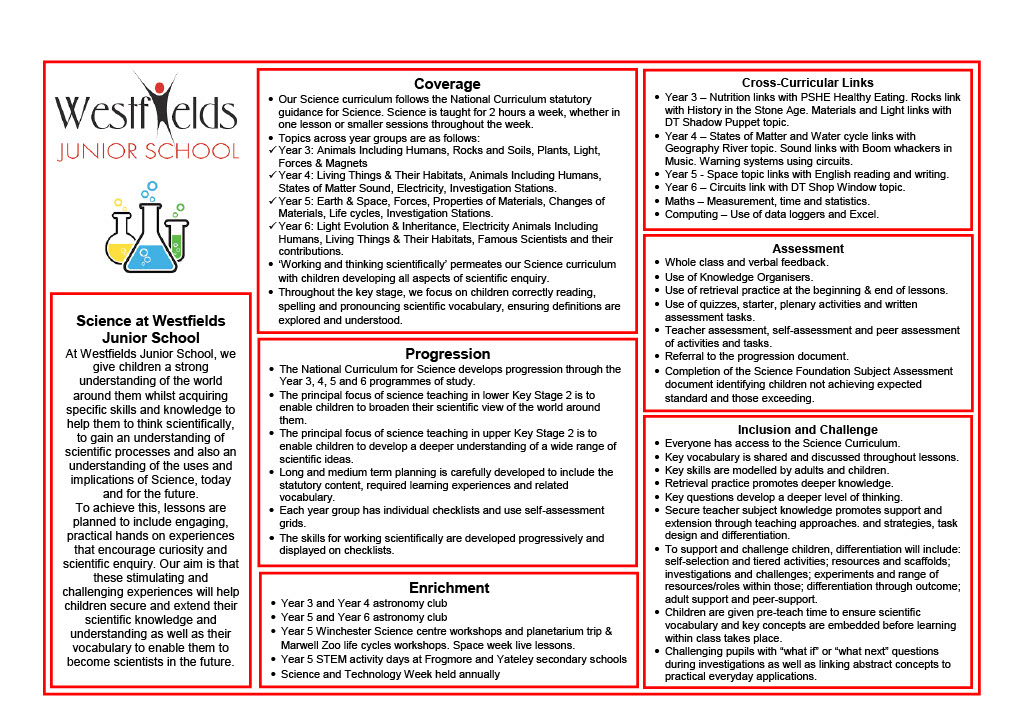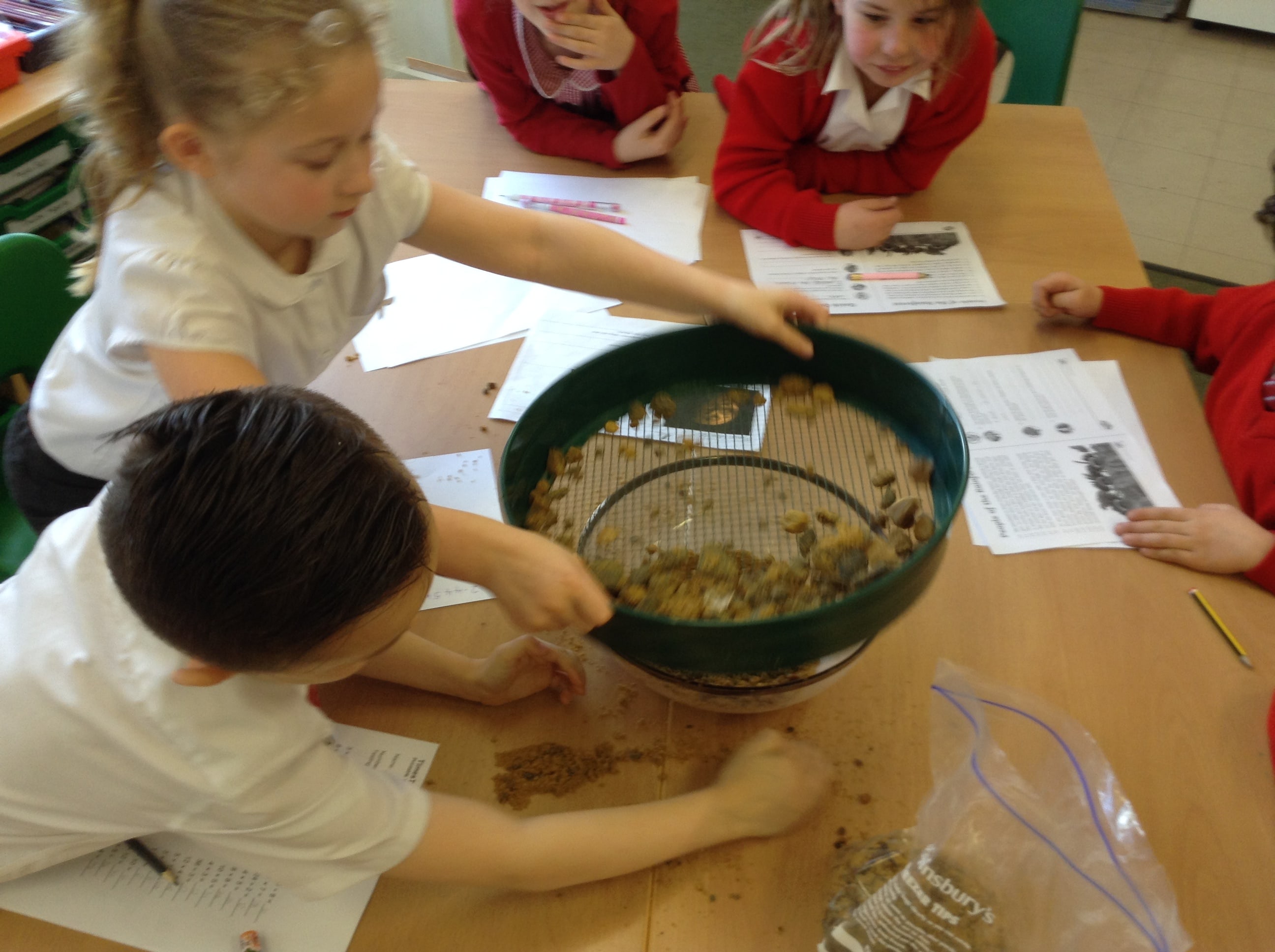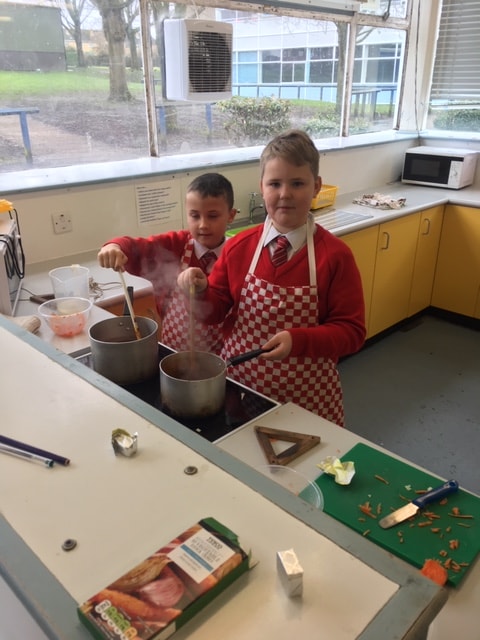Science
Please view our Science Curriculum Progression of Skills and Knowledge here:
WJS Curriculum Progression – Science (download link)
Stem Week 2023
This year, the theme for British Science Week 2023 is ‘Connections’. Our world is full of connections – connections in our bodies, with other people and with other countries. Also, connections can be made between all STEM subjects (science, technology, engineering and maths). That’s what makes it such a wonderful topic for this year’s British Science Week!
With this in mind, Miss Porter and I have planned a special week with included learning about an inspirational Victorian engineer, Isambard Kingdom Brunel. He was famous for his pioneering work designing Britain’s railways, bridges, tunnels, viaducts and passenger ships. Year 3 and 4 used Chatterpix and Year 5 and 6 used Adobe Spark to present their research about Brunel.
Brunel inspires our next activity to work in groups using paper and cello tape to design a bridge. Once the group designed the bridge, we tested it to see how much weight it will hold. Three bridges in 3DT held 8kg!
We played a game of ‘Broken Phone’ to send a message around the school. This shows us all the different ways we can connect with others e.g. Morse code, Scratch program, letter, message in a bottle and remote-controlled cars.
Finally, we went outdoors to select a tree on our school grounds to collect data on. They found out the type of tree, the number of insects living on the tree, measure the trunk, used a stethoscope to listen to the tree and recorded what they heard.
We managed to pack so much scientific learning into this week and identify the range of connections within our world.
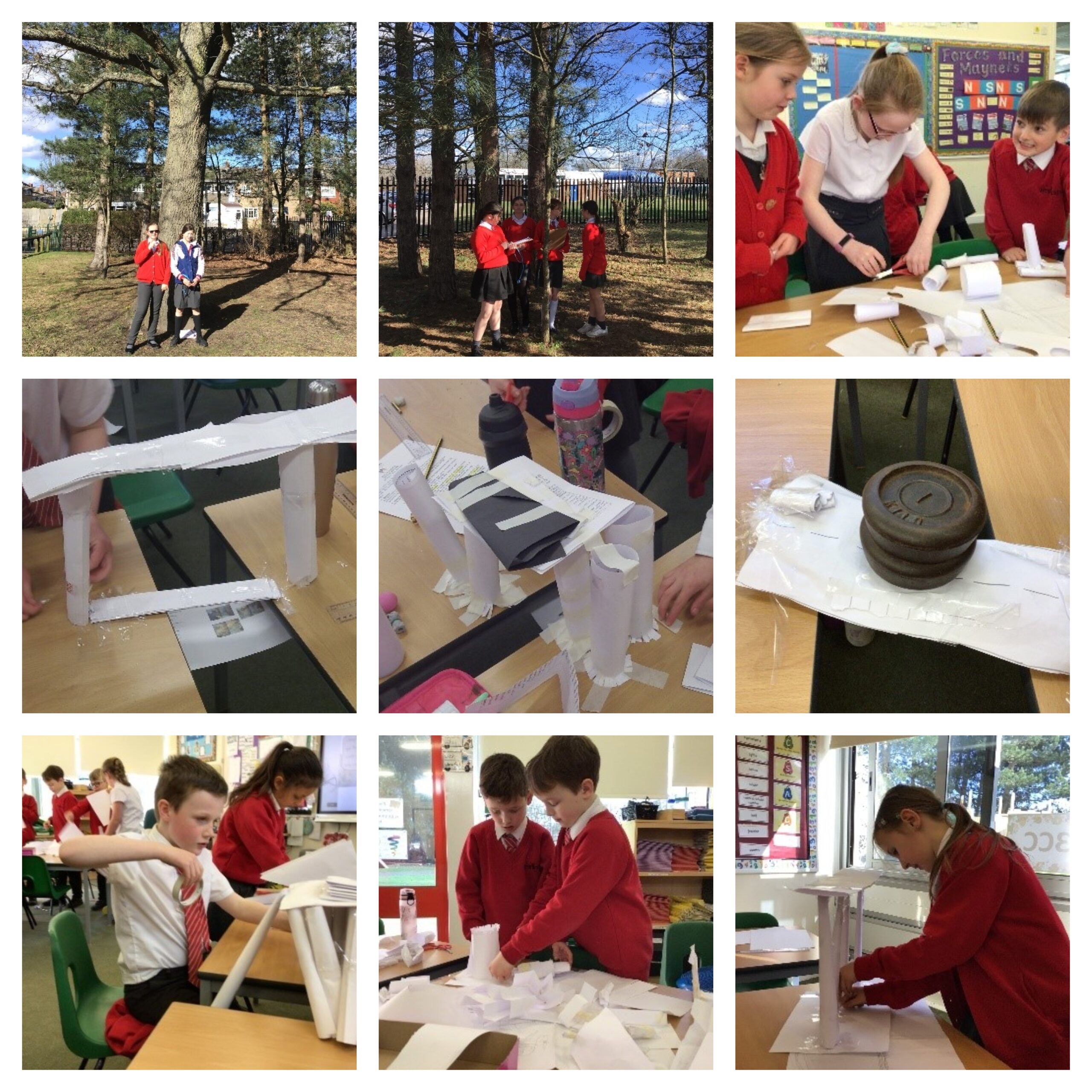
Stem Week 2022
Every class has completed a number of different activities around a central theme of growth. Tasks and challenges have included planting their own vegetables (cress, spring onions, peas and carrots), exploring how to create health soil discovering different things that live in or around the trees on our school, grounds and building nests with ‘beaks’ like penguins!
Most exciting of all has to be that the children have all had the opportunity to enter our garden design competition.
There is no doubt that the children have thoroughly enjoyed their growth themed fun and it is crystal clear that there are some super science stars of the future at our school!

STEM Week 2021
During National Science week, Westfields Junior School focused on how to create a sustainable planet. We looked at the causes and effects of global warming, pollution by littering as well as recycling and reusing items. We finished the week by designing a school for the future using the ideas generated by the week’s investigation.


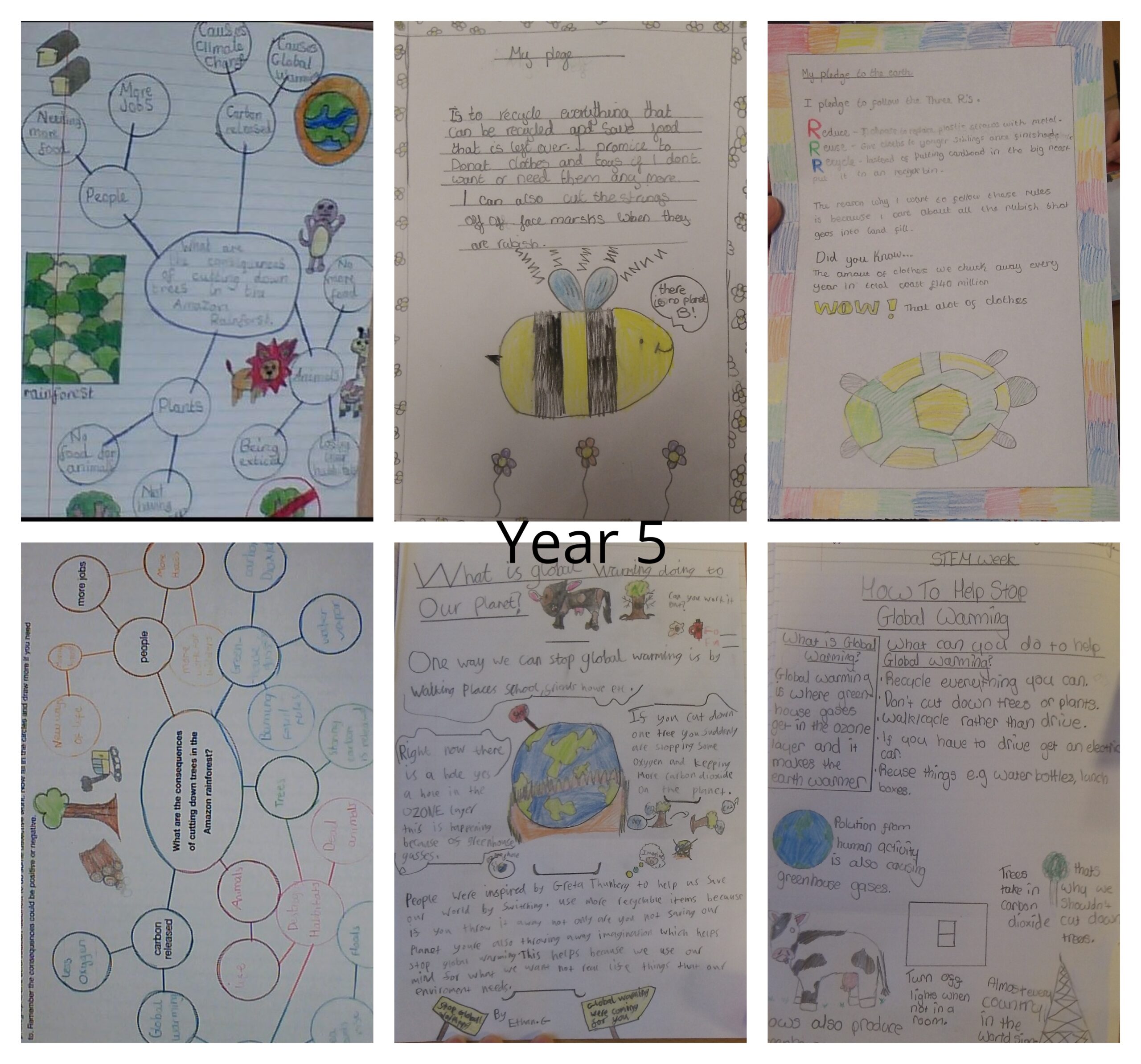
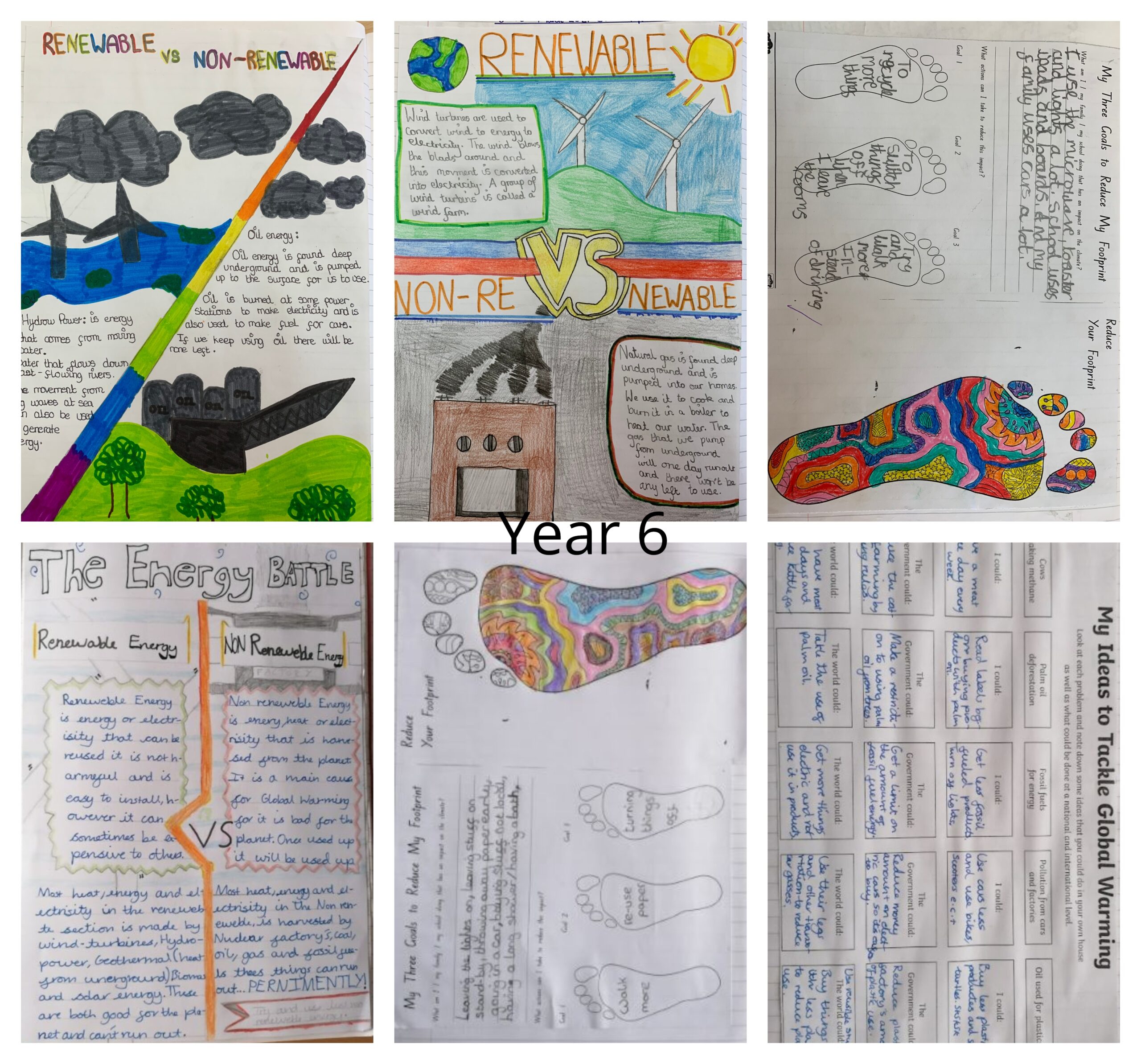
Science Curriculum Autumn 2020
Wow, what a start to the year so far. We have hit the ground running to excite our budding scientists at school and everyone else too!
Year 3 have started the term with an inside look at skeletons. After a few nervous comments about scary skeletons, the year group became fascinated with how our skeleton supports the body and allows us to move. With designing a puppet to show support, researching the major bones in our bodies and investigating how muscles attached to bones have a pull movement to allow us to move different parts of our body, the skeleton became less scary and more fascinating.
Year 4 have started the year with an investigation using cress to identify the main criteria that allow us to categorise living things from non-living things (movement, respiration, sensitivity, growth, reproduction, excretion and nutrition – Mrs Gren). Further classification work developed the children’s scientific enquiry skill of classification keys with leaves from the school grounds being grouped and the different types of animals and plant life found further afield.
Year 5 have blasted off with their topic of Space. Starting with what the children already knew, the classes investigated how the rotation and revolution of the Earth creates day and night, seasons and yearly changes. Moving away from the Earth, they discussed, explored and modelled the different phases of the Moon and researched different planets’ properties as well as their position in order from the Sun. The children relished the opportunity to complete some independent research to answer the big scientific theories of blackholes, the expansion of the universe, exoplanets and galaxy forms.
Year 6 have shone with their ‘Light’ topic. Looking into mirrors and reflection, they reasoned that light travels in straight lines and that mirrors help us see in different places. The refractions of light through a prism gave a sense of awe as white light was split into its component colours. From this, they deduced that colours are seen with different colours of light reflecting and being absorbed by objects. With many investigations into how light is blocked by opaque objects, shadows were explored and explained using diagrams and scientific vocabulary.
A very busy term so far….
The Great Curiosity Project
During June, with many children carrying out remote learning with others in school, we decided to incorporate a creative week to ‘mix-up’ our approach to home learning as well as our in-school provision. The Great Curiosity Project was devised by staff and focused on our world and beyond. Rather than set daily tasks, the children were provided with daily videos and open-ended questions to explore and investigate. The Great Curiosity Project inspired a wealth of curiosity in homes and certainly in our bubbles at school! The open tasks led to the most amazing and creative outcomes with various projects being completed and experiments being carried out.
The Great Curiosity Project Day 1, The Great Curiosity Project Day 2, The Great Curiosity Project Day 3, The Great Curiosity Project Day 4, The Great Curiosity Project Day 5
Science Week 2020
This week, we have been celebrating British Science Week with a range of themed activities based on ‘Our Diverse Planet’. The week started with a special assembly, explaining that our planet is made up of a magnificent range of animals, plants, habitats and biomes. During the afternoon, each year group researched and created fact files on different animal groups: Year 3 – Animals with stripes; Year 4 – Animals that swim; Year 5 – Animals which fly; Year 6 – Animals with super senses. On Tuesday afternoon, each class worked with their buddy classes to produce work based on different biomes and habitats. Years 4 and 6 investigated cold climates and Years 3 and 5 hot climates. The range of activities included making Kahoot quizzes, Chatterpix animations, shoe box model habitats, posters and lots more! Wednesday was a day of investigations…Year 3 studied animal footprints; they left out flour overnight to see what animal tracks would be made. Lots of excitement ensued with the discover of squirrel and fox prints. Year 4 investigated how to keep warm in the cold by testing insulation materials using data loggers. Year 5 completed a flight investigation to prove if wingspan causes a longer glide. They created paper spinners to investigate cause and effect of wind span against flight time. And finally, Year 6 looked at how the eye works by investigating lots of optical illusions. On Thursday, we worked in our house teams to create a display of our investigations and findings from the week. We made posters which included images, results, data recordings, graphs and charts. These were presented to the whole school on Friday afternoon in our Science Showcase — what a wonderful week! Well done to all of the children and staff who embraced these exciting learning opportunities so enthusiastically!
Mr Chaplin, Year 5 Team Leader (for additional photographs please see the gallery below)

Science Week 2019
This year’s Science Week has centred around the theme of ‘Journeys’. The classes across the school began their own expedition by exploring some famous journeys from history. These included researching Sir Francis Drake’s circumnavigation of the globe, Shackleton’s Trans-Antarctic Expedition and even Yuri Gagarin’s journey to Space! Throughout the week, the children have enjoyed an array of scientific tasks, activities and investigations. From investigating circuits and strong structures to classification of rocks and adaptations of living creatures, all of the classes have enjoyed the hands on experiences they have shared. This afternoon, we shared an assembly to celebrate all we have achieved which was wonderful to see. We will also be collating some of our work and displaying it in school and on the website, so keep your eyes peeled!
